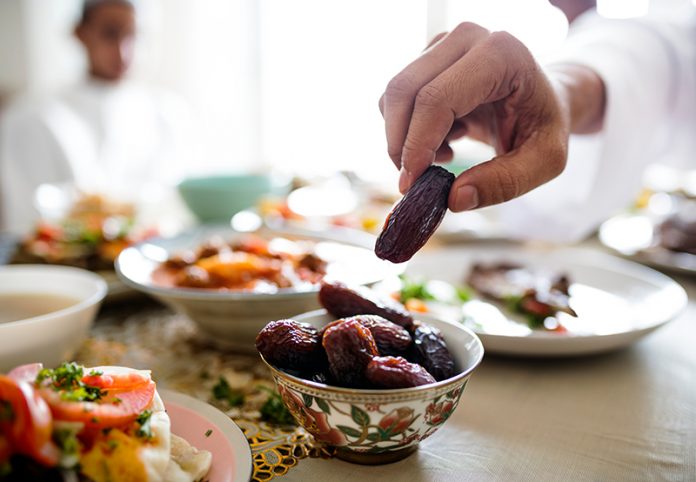Fasting in Ramadan is simply a detoxification to our body. It is an effective way to clean our digestive system, and flush out all the toxins. The concept of Ramadan and healthy fasting during this holy month seems to be misunderstood by many people. They tend to binge on food from the minute they start eating until they stop. This is what makes them feel abdominal discomfort, constipation, headache, indigestion and weight gain.
Fasting during the month of Ramadan is as much a mental exercise as it is a physical one. Although we may differ in how we prepare our minds and bodies, here are some tips that can help you adjust to the daily fast.
Because you are fasting for more than 10 hours, you need to look at the food you consume.
Consuming slow-digesting foods like fiber, vegetables more than fast-digesting foods like juices, white bread, sweets, sugary drinks, can be a good way to start. Fast digesting foods make you feel hungry again 2 to 3 hours after eating.
Why do we tend to gain weight easily during this month, even when our food quantities are still the same as before?
When we are fasting for more than 10 hours, our metabolism slows down. Introducing food after those fasting hours makes you gain weight easily. So, imagine what happens when you eat big quantities at one shot! Your body is no longer burning enough calories as your metabolism went down and you tend to gain a lot of weight.
Start by:
- ½ cup of low-fat yogurt and 3 dates.
- Dates contain iron, magnesium, potassium, which is perfect for dehydration.
- 1 glass of water ( do not forget that you were not drinking water for hours, so you need fluids.)
- 1 small plate of Fattoush or any plain green salad
- 1 small bowl of broth or non-creamy soup.
- These items contain essential and enough vitamins and minerals to compensate for the fluid loss and dehydration.
- Those food choices are long-digesting foods, which give you satiety for a longer time.
- Now that you finished from the first part, go pray, walk or rest for a bit.
An hour after:
- Have a plate of the main meals: Tachriba, hariss, jerish, steamed rice with any lean proteins (beef meat, chicken or fish).
- You can have a piece of sweet, but let it be only 3 to 4 times a week.
- Instead have a piece of fruit or a fruit salad, rich in fiber and vitamins.
For Suhoor:
- Do not let your main dish be your suhoor. This meal is usually very late; therefore, the metabolism is even slower than before.
- Light food choices are essential at that time, especially those that will not make you feel thirsty the next day.
- For example, a small plate of steamed rice and yogurt.
- Rice retains water in the body (so it will not make you feel thirsty), gives you energy, and makes you feel full for a longer time. Yogurt is refreshing, especially the low-sodium version.
- Avoid juices because of its high sugar content; as sugar is easily absorbed in the body, and triggers thirst fast.
- Avoid tea and coffee at night. These are diuretics that will flush the water out of your body, making you feel more dehydrated, besides their caffeine content, prevents sleeping.
- A fruit platter is a good option. It contains minerals which you need to prevent dehydration.
- A bowl of foul is also a good option, add fresh tomatoes to it.
- Baked potatoes topped with low-fat labneh is a great option with cucumbers and fresh lettuce
And of course, do not forget to drink a lot of water to compensate for the fluid loss. - Again Ramadan Kareem for everyone fasting.

To subscribe to my diet programs, don’t forget to log in to: www.eatlikemira.com


















